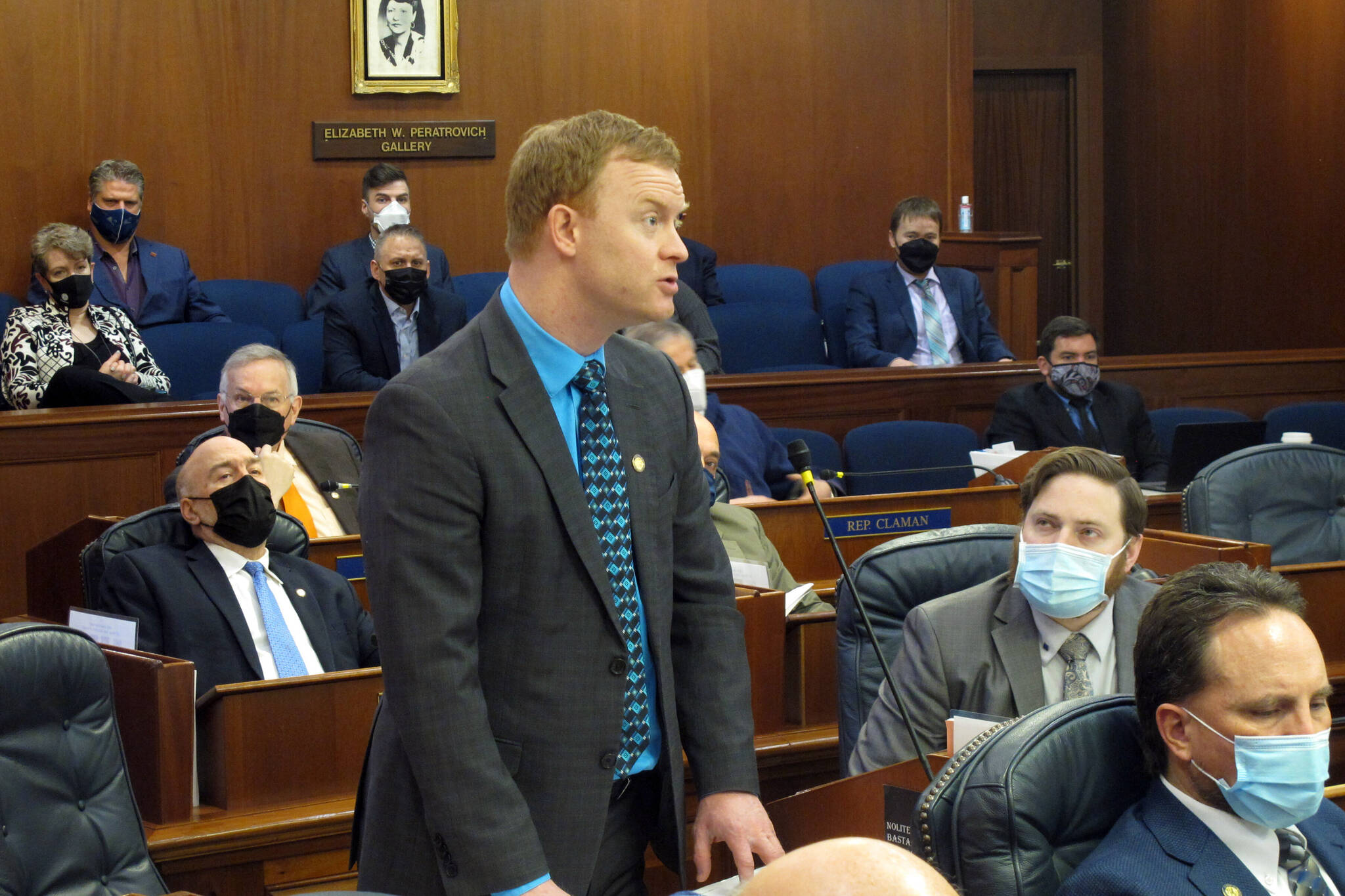A state court judge on Friday allowed to move to trial a lawsuit alleging that an Alaska lawmaker’s ties to the far-right Oath Keepers group disqualifies him from holding office.
Superior Court Judge Jack McKenna denied a request by Republican Rep. David Eastman to dismiss the lawsuit filed by Randall Kowalke, who was among the individuals who earlier this year filed challenges to Eastman’s candidacy with the Division of Elections. The division determined that Eastman, a Wasilla Republican, was eligible to run for reelection, but Kowalke’s attorneys argue the division failed to investigate Eastman’s eligibility under the so-called disloyalty clause of the state constitution.
Kowalke’s lawsuit pointed to a provision of the constitution that states that no one who “advocates, or who aids or belongs to any party or organization or association which advocates, the overthrow by force or violence of the government of the United States or of the State shall be qualified to hold” public office.
McKenna, in one of several orders Friday, said he interprets the clause as applying “only to unprotected association, speech and conduct” and would view the matter through that lens. Trial is slated to begin Monday.
McKenna said Kowalke must show that the Oath Keepers “are an organization that advocates concrete action to overthrow the government of the United States by force or that they have actually engaged in such conduct.”
Eastman won his race last month. McKenna previously ordered that certification of the race be delayed pending trial and further order from the court.
McKenna said Friday that a trial is necessary to resolve Kowalke’s claim against Eastman and to determine whether the division’s response to Kowalke’s challenge of Eastman’s candidacy was proper.
A founder of the Oath Keepers, Stewart Rhodes, was convicted last month of seditious conspiracy related to the Jan. 6, 2021, riot at the U.S. Capitol.
Eastman has said he was in Washington, D.C., that day but did not take part in the riot. Eastman has not been accused of any crimes.
McKenna said he has been presented with arguments urging him to consider whether barring someone from office under the clause is wise and to consider the effect of applying the provision.
But McKenna said it is not his place to “decide on the wisdom” of the constitutional provision or to make policy.
“Instead, when a claim is filed implicating constitutional and statutory provisions, the court must interpret and apply the Alaska Constitution as it was drafted by its framers and ratified by the people of this state,” he wrote. “The court must also interpret and apply the statutes passed by the legislature and signed into law by the executive.”

